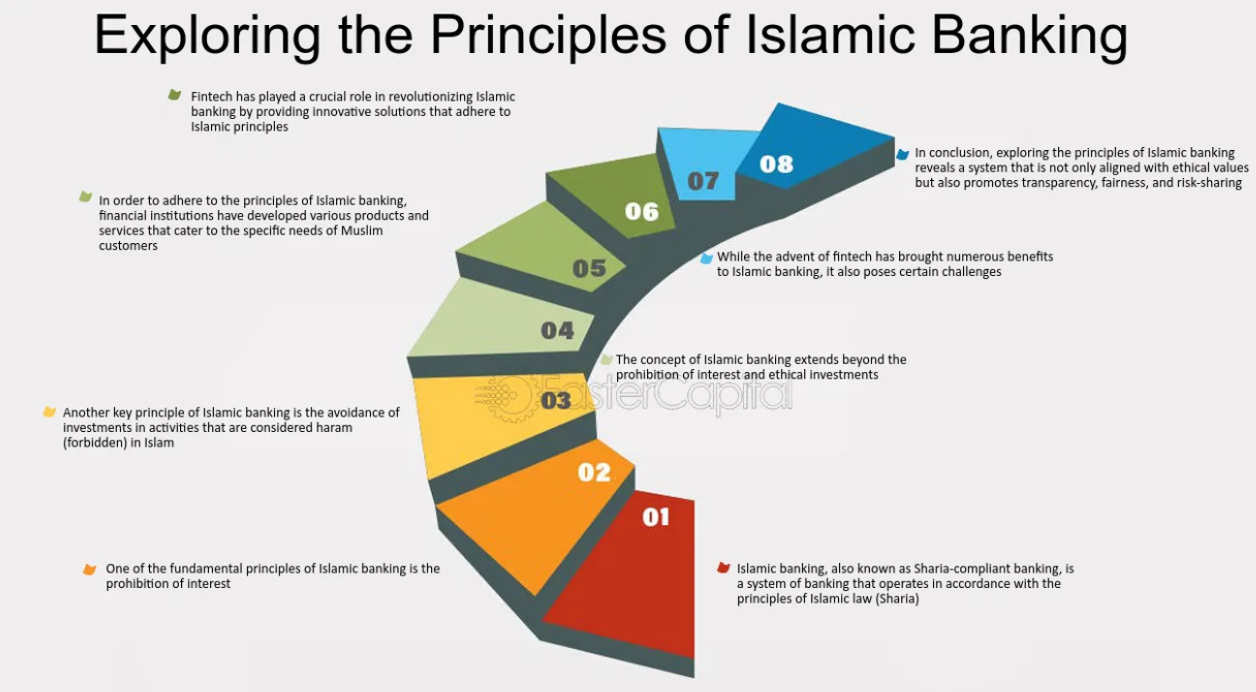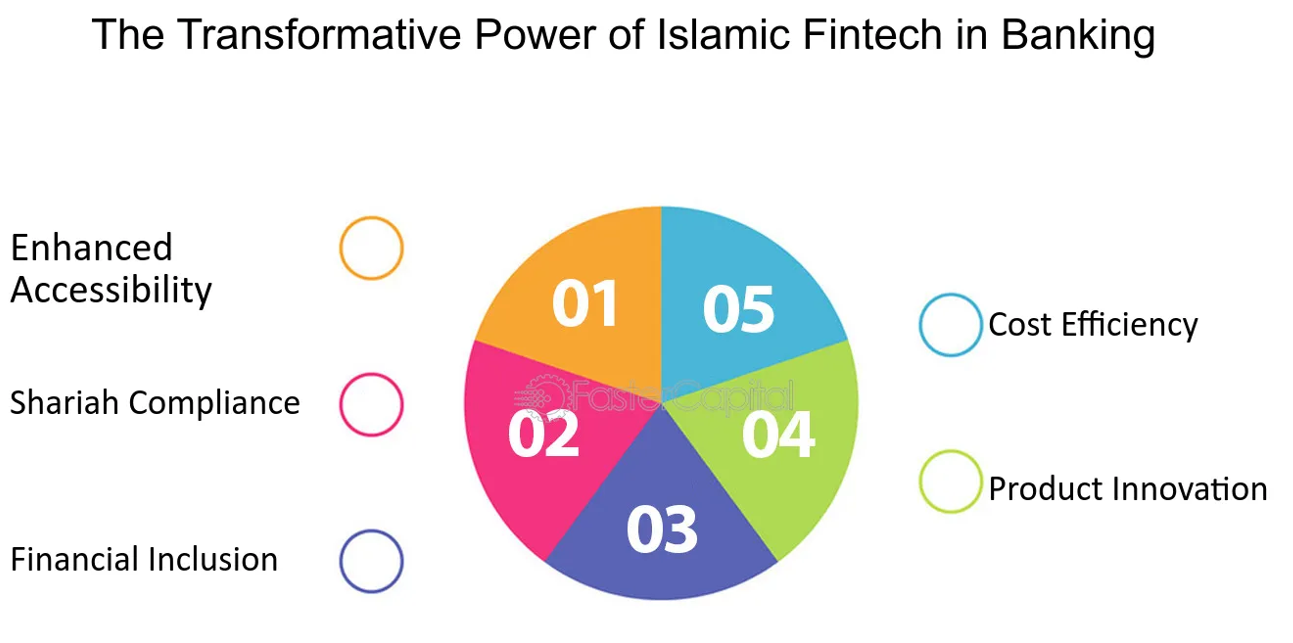The rapid growth of Shariah-compliant finance and the integration of mobile and internet banking offer significant opportunities for expanding the Islamic finance industry. Efforts to develop fintech ecosystems in key markets are essential to driving growth and innovation. But what exactly is Islamic fintech, and how does it differ from conventional fintech?

What is Islamic Fintech?
Islamic fintech is the integration of technology with Islamic finance principles. Any financial product or service developed under Islamic fintech must adhere to the rules derived from the Qur’an and Sunnah, collectively known as Shariah. This compliance governs all aspects of Islamic fintech, ensuring that offerings are free from interest (riba), excessive uncertainty (gharar), and unethical practices.
True to its fintech identity, Islamic fintech leverages digital channels for the distribution of Shariah-compliant financial products and services. These channels, often referred to as omni-channels, utilize cutting-edge technologies such as artificial intelligence (AI), blockchain, big data analytics, extensive cloud computing, and the Internet of Things (IoT). These innovations enhance transparency, efficiency, and user experience in the delivery of financial services.
Islamic fintech platforms aim to promote broader economic, social, environmental, and financial goals. These include improving product and service performance, enhancing financial inclusion, alleviating poverty, and fostering social justice. By democratizing access to Islamic financial services, fintech can provide more affordable and efficient ways for individuals and businesses to access financing, payments, and investments that align with the higher objectives of Islamic law (Maqasid Al-Shariah).
Bridging Islamic Finance and Fintech
The Islamic financial system is built on risk-sharing and adherence to strict compliance rules. However, in practice, Islamic banking has often mirrored conventional finance models that emphasize risk transfer from lender to borrower. This divergence from Islamic finance principles has led to criticism from various segments of the Muslim community, particularly since Islamic banking’s inception in the 1960s and 1970s.
One key issue is the expectation among consumers of Islamic banks for guaranteed or fixed returns, similar to conventional banks. This reflects a misunderstanding of the profit-and-loss-sharing (PLS) mechanism central to ideal Islamic finance. Under a proper PLS model, both parties in a transaction—the financier and the entrepreneur—share risks and rewards, fostering collaboration and mutual accountability. This partnership aligns with core Islamic values such as cooperation, care, and harm prevention.
Current Practices and Limitations
Islamic banks today predominantly rely on risk-transferring products such as murabahah (cost-plus financing) and ijarah (leasing). Truly risk-sharing products like mudarabah (silent partnership) and musyarakah (joint venture) represent a small fraction of Islamic banks’ balance sheets. This reliance on risk-transfer mechanisms deviates from the essence of Islamic finance.
Additionally, Islamic banking and finance have struggled to operationalize Shariah ideals alongside social and capitalistic goals. Despite its potential, the industry has made limited progress in promoting financial inclusion among underbanked and unbanked populations. Financial democratization is essential for the economic empowerment of the Muslim ummah (community), yet current models fall short of this aspiration.
The Need for Transformation
To fulfill its true potential, Islamic banking must evolve from a risk-transferring to a risk-sharing model. This transformation should be grounded in the norms and principles that underpin a genuinely Islamic economy. Rather than merely competing with interest-based conventional systems, Islamic finance should strive to offer a distinct and values-driven alternative.
The rhetoric in Islamic finance literature and conferences frequently emphasizes the importance of risk sharing. However, actual understanding and implementation of this model remain limited. A paradigm shift is necessary to disrupt conventional practices and bring about meaningful change in the industry.

Leveraging CRM for Islamic Financial Products
Customer Relationship Management (CRM) tools such as Microsoft Dynamics 365 Customer Engagement (CE) can play a pivotal role in the effective implementation of Islamic financial products. These tools offer robust frameworks for managing Murabaha loans, Murabaha deposits, and credit card origination under Islamic principles such as Tawwaruq. By using CRM solutions, financial institutions can ensure that their operations remain compliant with Shariah while enhancing customer experience and operational efficiency.
FiNASAL has demonstrated sound knowledge in implementing Islamic financial instruments. Their expertise in deploying technology-driven solutions tailored to the unique needs of Islamic finance institutions further strengthens the case for integrating fintech with Islamic banking practices.
Contact us today to learn more about our transformation capabilities for Islamic Finance
Conclusion
Islamic fintech offers a promising path for addressing many of the challenges facing the Islamic finance industry. By embracing technological innovations and adhering to Shariah principles, Islamic fintech can expand access to ethical financial services, promote inclusivity, and foster shared prosperity. To achieve these goals, the industry must prioritize risk-sharing models and align its practices with the higher objectives of Islamic finance. This holistic approach can unlock new opportunities for growth and better serve the financial needs of the global Muslim community.

